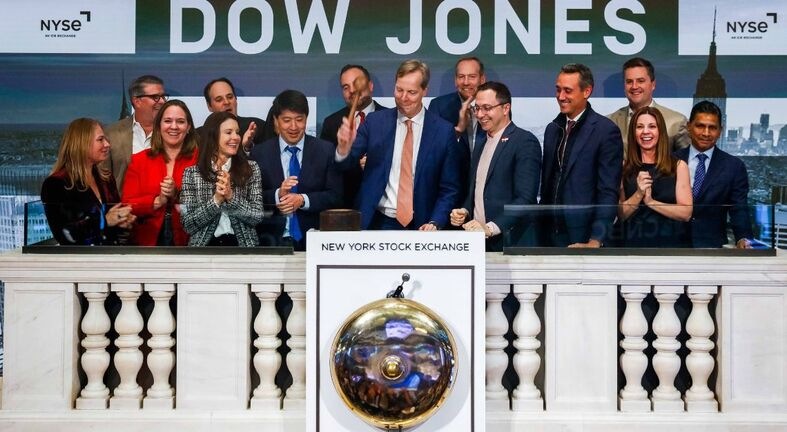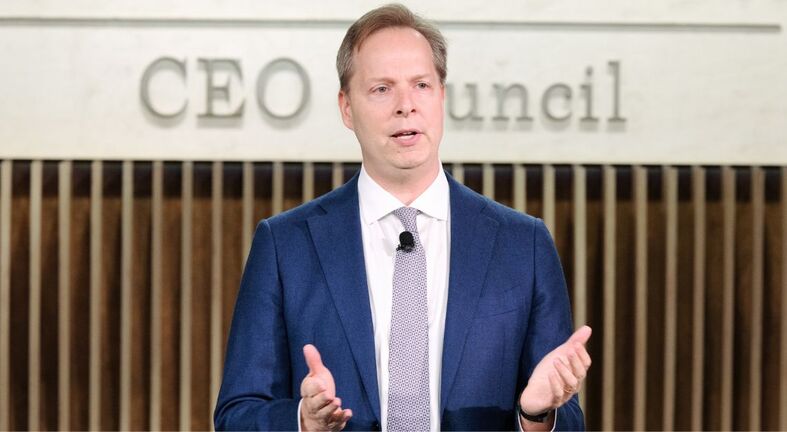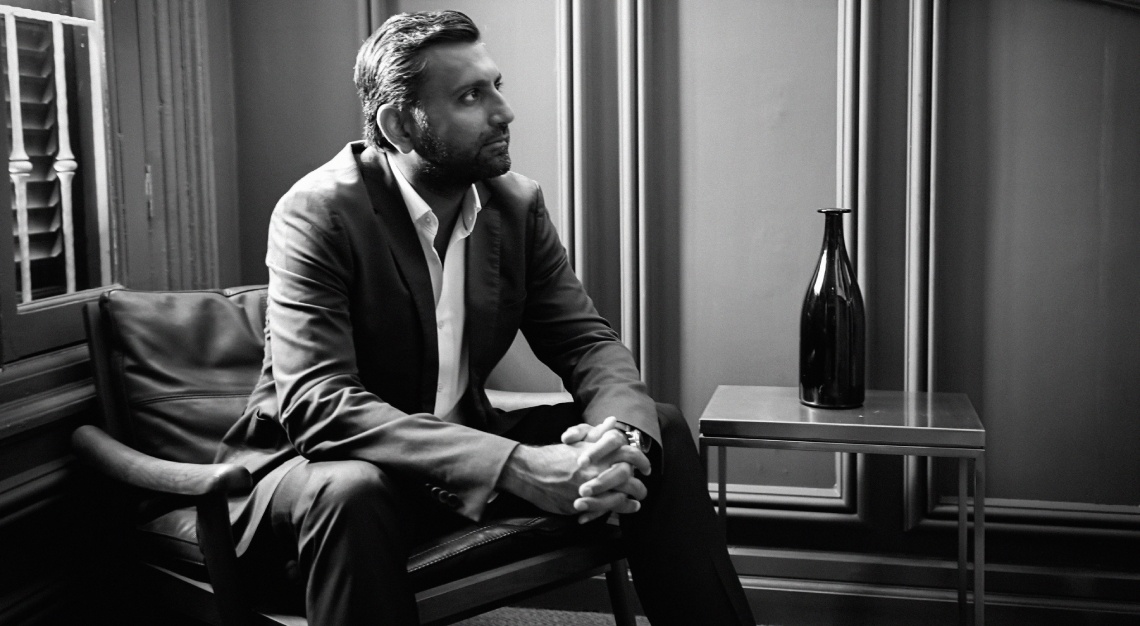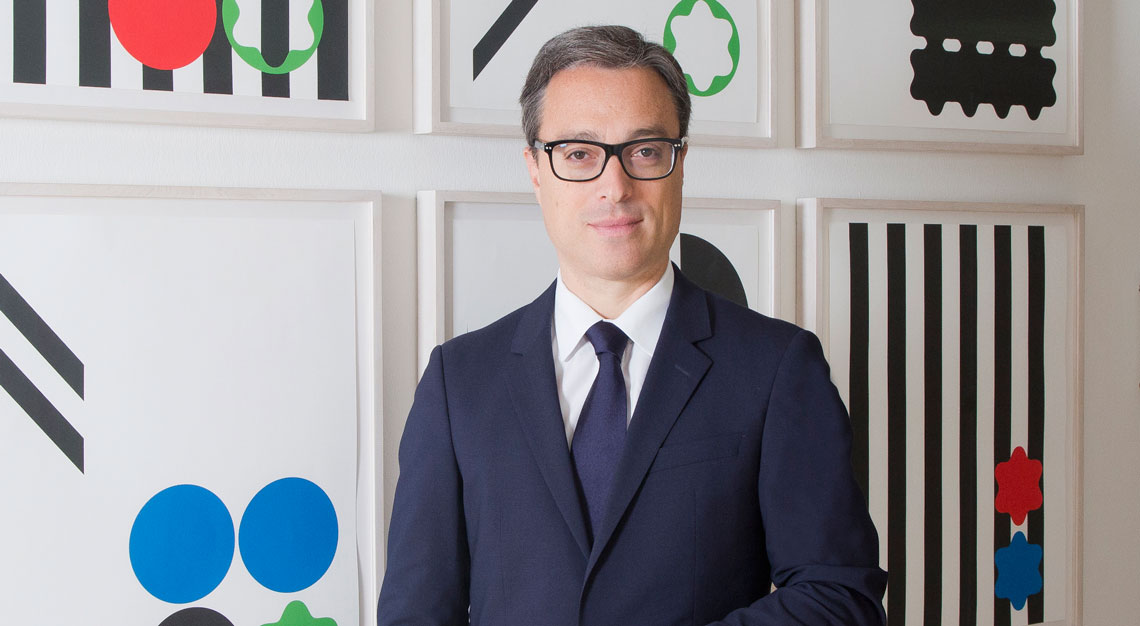Latour champions discernment as the defining edge in today’s leadership landscape
In the most exclusive circles—from private members’ clubs to corner offices—a profound shift is taking place. Society’s most successful individuals, those who can acquire virtually anything, are discovering that their most pressing need cannot be procured at auction or commissioned from artisans. What they seek is something far more elusive: the assurance that comes from truly understanding what’s unfolding in an increasingly volatile world.
In a landscape where a single misread geopolitical shift can reshape entire markets overnight, discernment has quietly emerged as the scarcest luxury of all.
Few understand this transformation more intimately than Almar Latour. As CEO of Dow Jones, he stewards the media empire behind The Wall Street Journal, Barron’s, and MarketWatch—institutions that have long served as the intelligence apparatus for global business elites. His daily interactions with C-suite executives and ultra-high-net-worth individuals have given him unique insight into how luxury itself is being redefined.
Under his leadership, Dow Jones has delivered record financial results, including more than doubling revenue since 2020. But more tellingly, as global complexity has intensified, so has demand for curated intelligence.

Latour’s ascent began in the field as a foreign correspondent in the mid-1990s. Years spent reporting taught him that transformation often doesn’t announce itself—it emerges at the periphery. His understanding of Asia crystallised during his four-year tenure as editor-in-chief of the Asian Wall Street Journal, where he launched digital verticals including China Realtime and driving contextual content in Japan and Korea before it became industry orthodoxy.
That front-line vantage point continues to shape his worldview. In conversations with CEOs, family office principals, and multinational leaders, Latour notes a fundamental shift: for those navigating high-stakes decisions across regions, intelligence itself is becoming a new marker of status. He draws a parallel to the famous Patek Philippe philosophy: “You never actually own a Patek Philippe. You merely look after it for the next generation.” For Latour, this concept now extends beyond timepieces to institutions, and increasingly, to information itself.
“We are custodians,” he explains. “We have to take this institution forward for the next generation. But what’s changed is that our readers—these decision-makers—are no longer just seeking information. They’re seeking the luxury of understanding, of discernment, of being able to navigate complexity with confidence.”
This extends to what Latour sees as Dow Jones’s fundamental societal responsibility: upholding truth. “We have a responsibility to bring reliable information and really help people make decisions,” he says. “We have to earn that every day.”

What has fundamentally shifted is the velocity and volume of data competing for attention. “There’s a premium on trusted intelligence, and I’ve never seen that need expressed more acutely than in recent years,” Latour observes. For decision-makers navigating geopolitical volatility and technological disruption, reliable intelligence has become a competitive advantage that no amount of capital can replicate.
Asia is driving much of this transformation. The region represents where “the future of leadership, innovation, and influence is being shaped,” according to Latour. For Asian leaders, his observations are particularly prescient. “What I see in Asia is a different relationship with information,” he explains. “There’s less tolerance for surface-level analysis. Asian business leaders want depth, context, and the interconnections between markets, [a need] that Western media often misses.” This regional appetite for nuanced intelligence has driven Dow Jones to treat Asia not as an afterthought, but as a primary market deserving indigenous insight.
“You can’t treat Asia as a translation exercise,” Latour emphasises. “You have to meet people where they are and treat each market with the same respect you give your home market.” For Asian executives, this means access to intelligence that understands regional complexities, from regulatory environments to cultural nuances that can make or break cross-border deals.

Latour describes his leadership philosophy as rooted in “extreme curiosity” and a focus on enabling others to lead, principles that resonate deeply with Asian business culture. “I’ve always been driven by curiosity. It forces you to keep listening. That’s what the best leaders and stories require.”
“In Asia, the pace of change is accelerated,” he continues. “What works is being genuinely curious about your market, your customers, your competition, and being willing to pivot when that curiosity reveals new truths.” He urges his organisation to operate “at the edge of change, not in the comfort of consensus”—guidance that feels particularly apt for leaders navigating the region’s dynamic economies.
This philosophy has taken physical form with Dow Jones’s flagship Journal House event, an invitation-only editorial and experiential forum targeted at business leaders that was brought to Singaporean shores for the first time last year. More than a networking venue, its focus is on creating spaces where Asian executives can access contextual intelligence and engage with peers facing similar regional challenges.
Asked to capture the current moment in a single word, Latour offers: “Change. It touches everything and demands the same discipline within yourself to respond.” Leadership success, he says, is ultimately measured by one’s ability to navigate constant evolution whilst maintaining fundamental principles. “You will be judged,” he warns, “by how you navigate that change.”






